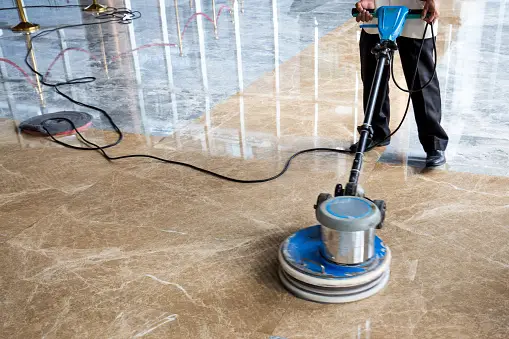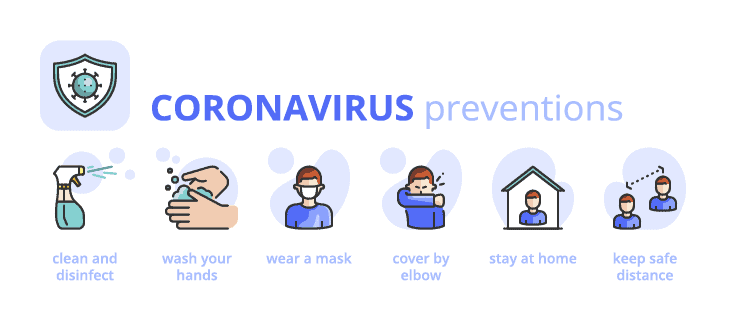
Creating a Welcoming Environment: The Importance of Cleanliness in Commercial Spaces
Date Posted:
March 7, 2024
In the bustling world of commerce, first impressions can make or break a business. Customers, clients, and employees alike are influenced by the environment they step into, and cleanliness plays a pivotal role in shaping these perceptions. From enhancing health and safety to boosting productivity and customer satisfaction, the importance of cleanliness in commercial spaces cannot be overstated.
First Impressions Matter
The adage “you never get a second chance to make a first impression” holds particularly true in the business realm. A clean and well-maintained commercial space not only attracts customers but also leaves a lasting positive impression on them. Visitors entering a tidy establishment are more likely to perceive it as professional, trustworthy, and reliable. Similarly, employees working in a clean environment feel valued and motivated, contributing to a positive company culture.
Health and Safety Concerns
Beyond aesthetics, cleanliness directly impacts the health and safety of everyone in a commercial space. Regular cleaning and disinfection protocols are essential for preventing the spread of germs and illnesses, especially in shared environments like offices, retail stores, and restaurants. Moreover, a clean workplace reduces the risk of accidents caused by clutter or hazardous substances, promoting a safe working environment for employees and visitors alike.
Boosting Productivity
A clean and organized workspace has a profound effect on employee morale and productivity. Research has shown that employees working in a clean and clutter-free environment experience less stress and are more focused on their tasks. Additionally, a well-maintained workplace fosters a sense of pride and ownership among employees, leading to increased job satisfaction and higher levels of engagement.
Preserving Assets
Cleanliness not only contributes to the well-being of individuals but also helps in preserving physical assets within a commercial space. Regular cleaning and maintenance routines can extend the lifespan of furniture, equipment, and fixtures, reducing the need for costly repairs or replacements. By investing in cleanliness, businesses can effectively manage their resources and minimize long-term expenses.
Customer Satisfaction and Retention
In the competitive landscape of business, customer satisfaction is paramount to success. A clean and hygienic environment significantly influences the overall customer experience, leading to higher levels of satisfaction and repeat business. Customers are more likely to return to establishments that prioritize cleanliness, as it reflects a commitment to quality and professionalism.
Environmental Impact
While cleanliness is essential, it is equally important to consider its environmental impact. Implementing sustainable cleaning practices and using eco-friendly products can minimize the carbon footprint of commercial operations. By choosing environmentally responsible cleaning solutions, businesses can demonstrate their commitment to corporate social responsibility and contribute to a healthier planet.
Implementing Effective Cleaning Strategies
To maintain cleanliness in commercial spaces, businesses must establish and adhere to effective cleaning strategies. This includes creating regular cleaning schedules tailored to the specific needs of the environment and providing comprehensive training to staff on proper cleaning techniques and product usage. By investing in the right resources and procedures, businesses can ensure a consistently clean and welcoming environment for all.
In conclusion, cleanliness is not just a matter of aesthetics but a fundamental aspect of creating a welcoming and thriving commercial environment. From making positive first impressions to enhancing health and safety, cleanliness impacts every aspect of business operations. By prioritizing cleanliness and implementing effective cleaning strategies, businesses can foster a culture of excellence, improve customer satisfaction, and achieve long-term success.
FAQs (Frequently Asked Questions)
- How often should commercial spaces be cleaned?
- The frequency of cleaning depends on factors such as foot traffic, type of business, and specific cleaning needs. Generally, daily cleaning is recommended for high-traffic areas, while less frequented areas may require weekly or monthly cleaning.
- What are some eco-friendly cleaning products businesses can use?
- Eco-friendly cleaning products include those made from natural ingredients such as vinegar, baking soda, and citrus extracts. Additionally, many commercial cleaning companies offer environmentally friendly alternatives to traditional chemical cleaners.
- How can businesses encourage employees to maintain cleanliness?
- Businesses can promote cleanliness by providing adequate training on cleaning procedures, incentivizing cleanliness through rewards or recognition programs, and leading by example through management practices that prioritize cleanliness.
- What role does cleanliness play in customer perception?
- Cleanliness directly influences customer perception by shaping their first impressions of a business. A clean and well-maintained environment signals professionalism, reliability, and attention to detail, leading to higher levels of customer satisfaction and loyalty.
- How can businesses ensure consistency in cleaning standards across multiple locations?
- Standardizing cleaning protocols, providing comprehensive training to staff, conducting regular inspections, and implementing quality control measures are essential for maintaining consistency in cleaning standards across multiple locations.
To get started, request a quote here.







